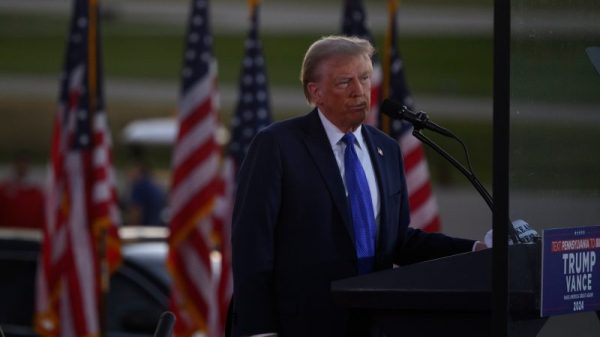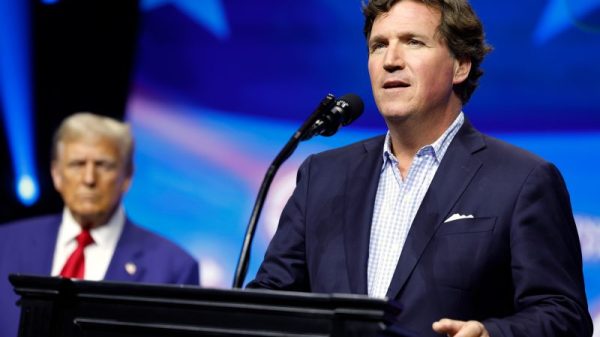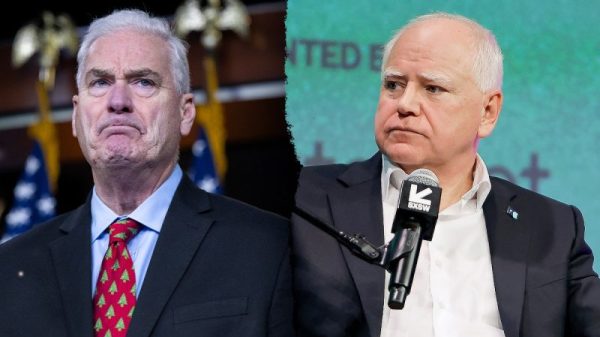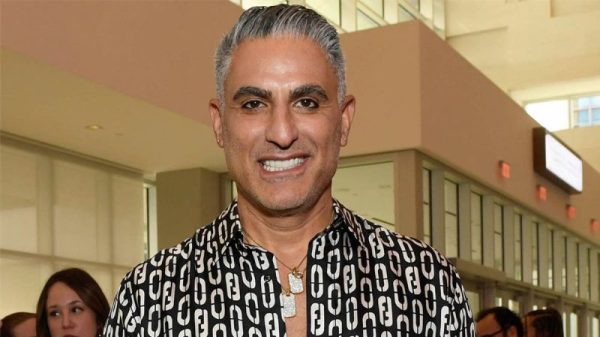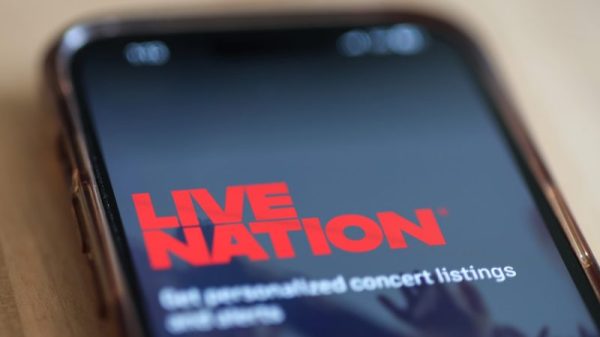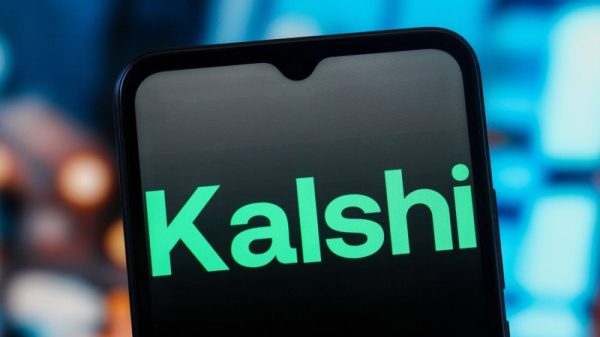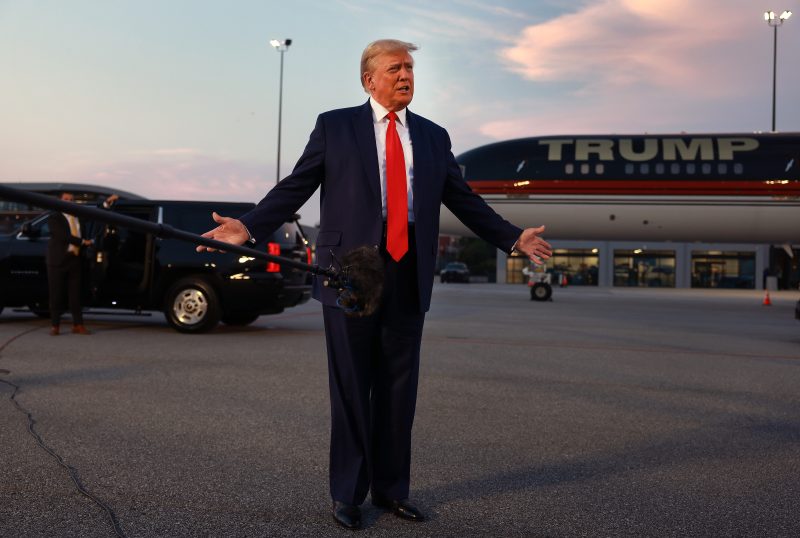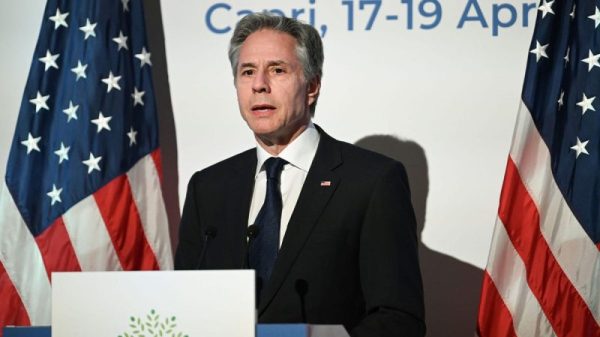Donald Trump’s visit to Georgia on Thursday was brief. He flew in to Atlanta, drove to the Fulton County Jail, surrendered to authorities, was processed on criminal charges and then released. Back into the SUV and back to the airport, another rich man heading back north of Richmond.
But he did pause for a moment to speak to the media before boarding his “Trump”-emblazoned jet. For just over a minute, he offered a preview — or really, a reiteration — of how he plans to spin this latest indictment … if not legally, then at least politically.
It began in typically hyperbolic Trump style.
“Thank you very much for being here. I really believe this is a very sad day for America. This should never happen.”
Then, the transition to the rhetoric.
“If you challenge an election — you should be able to challenge an election. I thought the election was a rigged election, a stolen election, and I should have every right to do that.”
And he did. He challenged the election before it happened, by elevating baseless or debunked claims about the validity of mail ballots. He challenged the election the night it concluded, with a White House news conference making false claims about the results. He challenged the election over the ensuing days as he elevated various quickly dismissed claims about illegal ballots or purported administrative violations. He challenged the election as he pressured Republicans not to certify his losses. It appears Donald Trump spent far more time in November and December 2020 challenging the election than he spent doing nearly anything else.
Of course, he also challenged the election through the traditional mechanism, in the courts. That yielded a steady stream of defeats as his attorneys and attorneys for his allies were unable to prove that the election was anything other than a reflection of the will of the American electorate. Trump didn’t like that result, certainly, and he deployed both legal and rhetorical tactics in an effort to challenge it. It didn’t work — but it certainly wasn’t for lack of trying.
The question is whether in doing so he crossed a legal line. It’s like asking someone repeatedly or annoyingly for money. You can do so; there’s no illegality. But there is a line; brandish a crowbar as you ask for money and the nature of the exchange shifts.
What Fulton County District Attorney Fani Willis argues is that Trump’s efforts to challenge the Georgia election crossed a legal line. Trump didn’t flash a crowbar at anyone, that we know of, but the indictment Willis obtained does delineate allegations of other ways in which his “challenging the election” violated the law.
But Trump wants his supporters to think that his offense was simply fighting back. So he next drew a common — and silly — analogy.
“As you know, you have many people that you’ve been watching over the years do the same thing, whether it’s Hillary Clinton or Stacey Abrams or many others. When you have that great freedom to challenge, you have to be able to. Otherwise you’re going to have very dishonest elections.”
Yes, Hillary Clinton argued that Trump’s 2016 win was “illegitimate,” in part thanks to Russia’s efforts to interfere on Trump’s behalf. And Stacey Abrams did refuse to concede when she lost the 2018 gubernatorial election in Georgia, arguing that her opponent, Secretary of State Brian Kemp, rigged the electorate against her. (Kemp easily defeated Abrams in a rematch last year.)
Even a moment of scrutiny, though, reveals differences between what Clinton and Abrams did and what Trump did. Beyond the issue of scale — neither Clinton nor Abrams was as relentless in promoting the idea that they’d won — neither tried to use the levers of power in any equivalent way to subvert their losses. To pretend that Clinton’s response to 2016 is in any way commensurate to Trump’s response four years later is to simply deny what Trump and his allies did, from trying to pressure the Justice Department to putting forward false slates of electors to pressuring states not to certify their results.
“What has taken place here is a travesty of justice. We did nothing wrong. I did nothing wrong. And everybody knows it. I’ve never had such support.”
This is an interesting argument: Trump suggests that the ongoing political support he receives from Republican voters is a reflection of those voters knowing he “did nothing wrong.”
It is true that most Trump supporters don’t think he violated the law. Only 16 percent of Republicans in a recent Associated Press-NORC poll said that they believed he committed illegal acts with his efforts in Georgia.
But this is in part thanks to Trump’s seven-year effort to depict any investigation into him as invalid and partisan. With the help of right-wing media, Trump has effectively tied all of these probes together under the rubric of establishment bias or, more recently, by claiming that they are actually an effort to target his supporters themselves.
Claiming that he did nothing wrong because his loyal supporters, whom he’s told for years that he did nothing wrong, think he did nothing wrong is not a robust rhetorical point.
“And that goes with the other ones, too. What they’re doing is election interference. They’re trying to interfere with an election. There’s never been anything like it in our country before. This is their way of campaigning. And this is one instance, but you have three other instances. It’s election interference.”
This is another common framing: Democrats are so afraid of Trump being on the ballot in 2024 that they are conspiring to keep him off it or working even now to undermine his chances. This argument resonates with his base — but also a lot of other people.
Democrats have unquestionably been giddy about Trump’s legal travails. But the overlap of Trump’s 2024 campaign and his indictments was largely a function of decisions made by Trump. He announced his candidacy for the 2024 Republican nomination remarkably early, only days after the 2022 midterms. That allowed him to frame the obviously looming indictments as a response to his political ambitions.
This argument is useful to Trump in another way: It inherently suggests that the charges themselves are meritless. One way of considering what has occurred is that Trump’s actions triggered legal repercussions that have collided with his political ambitions. (Ambitions, mind you, that heavily overlap with his legal interests.) Another is that the charges were a desperate, hollow reaction to his ambitions, despite how long the probes that yielded them have been underway.
Trump encourages acceptance of the second option above.
He then concluded his comments.
“So I want to thank you for being here. We did nothing wrong at all. And we have every right, every single right to challenge an election that we think is dishonest, that we think is very dishonest. So thank you all very much and I’ll see you very soon. Thank you very much.”
One thing that has been unquestionably true for the past eight years: We will see more of Donald Trump very soon.






